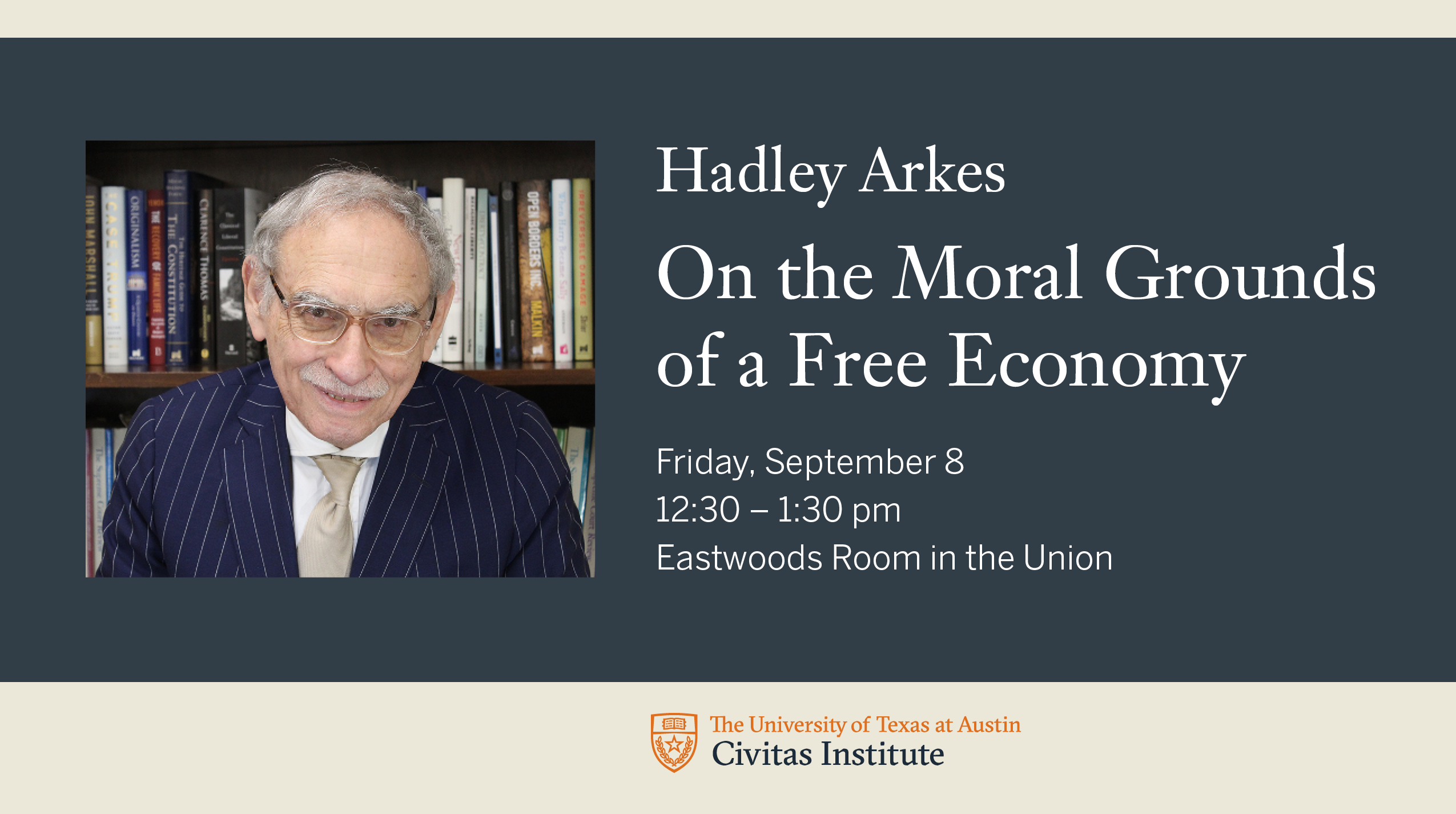On the Moral Grounds of a Free Economy with Hadley Arkes

In this talk, Hadley Arkes will revisit the moral grounds that underlie and sustain a free economy. Rather than an abstract, here is a vignette: When Richard Nixon lost to John F. Kennedy in 1960, and in his campaign for Governor of California in 1962, he was invited to join a major law firm in New York. There he argued a case before the Supreme Court, established himself as a serious figure in the law—and made more money than he had ever made as a Congressman, Senator, or Vice-President. Georgy Malenkov had risen in the U.S.S.R. under Stalin, taking a leading role in the management of the war; and after Stalin’s death he became the chairman of Council of Ministers. But four years later, in a clash with Nikita Khrushchev, he was ousted. He was exiled to run a hydroelectric plant in what is now Kazakhstan. It was as though George McGovern, losing in a massive landslide to Richard Nixon in 1972, had been sent out to run a filling station in Idaho. When the government owns and controls the economy there is no possibility of escaping or returning to security and wealth in the private sector. But consider this contrast in the United States: when Alger Hiss was released from prison, a man convicted of perjury and widely thought to have been working against his country as a Communist agent (a judgment that would be amply confirmed after the Soviet Union collapsed), he moved into the private sector. Hiss, from an elite background, including a clerkship with Justice Holmes, was provided a safe harbor – he was hired by Harvard University Press. He was given security, that is, in an institution secured by private wealth, with little dependence on the government – highlighting the connection between economic liberty and political liberty and pointing to enduring questions about the moral grounds of a free economy.
Bio:
Hadley Arkes is the Edward Ney Professor of Jurisprudence, Emeritus, at Amherst College, where he began as an assistant professor in 1966. He the author of 8 books, including Bureaucracy, the Marshall Plan and the National Interest (1972), The Philosopher in the City (1981), First Things (1986), Beyond the Constitution (1990), and The Return of George Sutherland (1994), Natural Rights and the Right to Choose(2002), Constitutional Illusions and Anchoring Truths: The Touchstone of the Natural Law (2010), and Mere Natural Law: Originalism and the Anchoring Truths of the Constitution (2023). Professor Arkes is the founder and director of the James Wilson Institute on Natural Rights and the American Founding.
